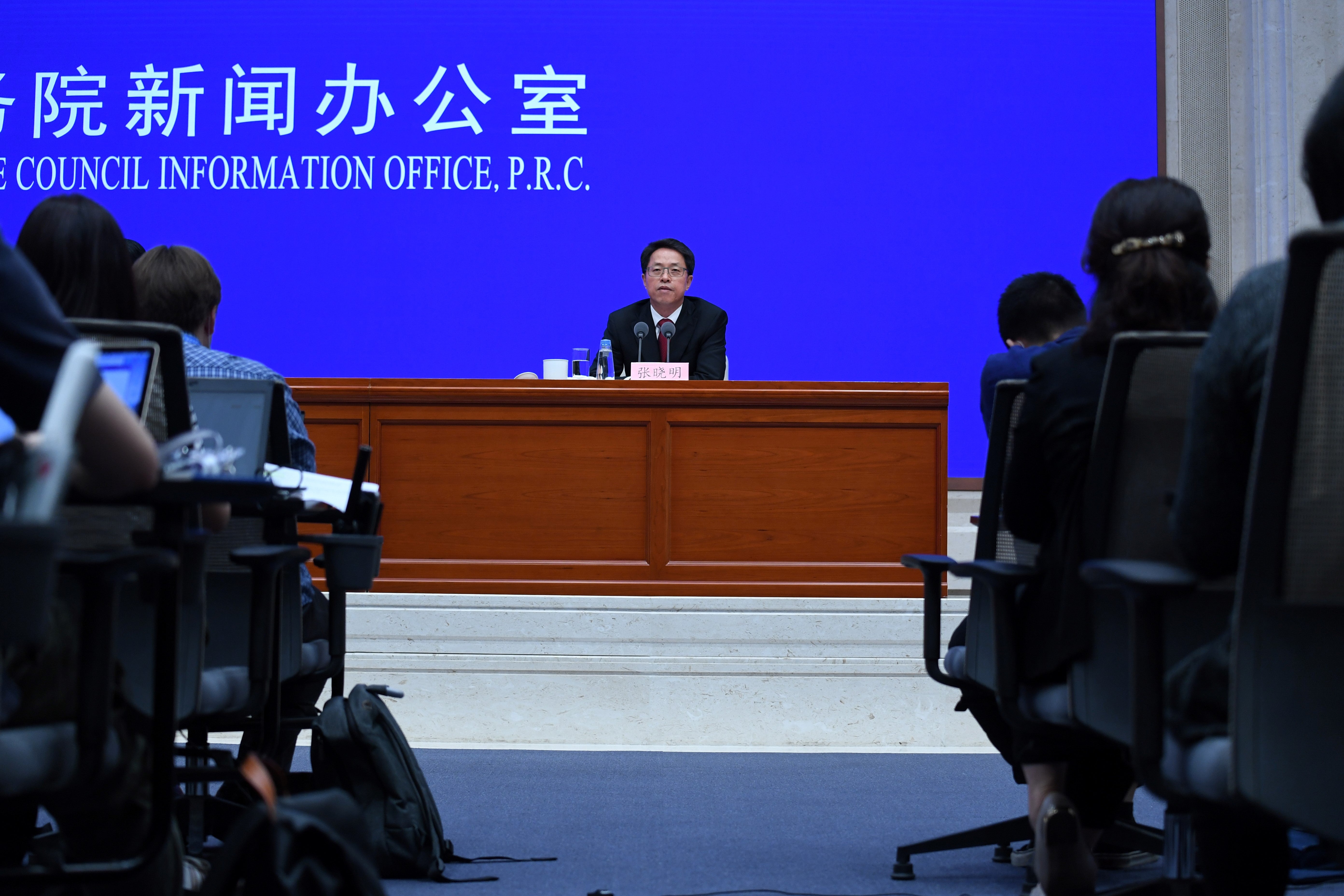China says it plans more moves in Hong Kong including ‘perfect’ legal system
Bejing is bringing sweeping changes to Hong Kong's mini-constitution, drafted to maintain a ‘high degree of autonomy’ in the former British colony

The Chinese government is eyeing further changes to the judicial system of Hong Kong, despite ongoing domestic and international backlashes against its contentious new national security law and “patriotism” clause for legislators.
Zhang Xiaoming, deputy director of China's Hong Kong and Macau Affairs Office, said on Tuesday that more reforms are going to be made to "perfect" the legal system in Hong Kong, while claiming that it would not undermine the special administrative region’s judicial independence.
"We need to see the Basic Law as something that is alive so we can interpret the Basic Law whenever necessary," said Mr Xiaoming during a seminar to mark the 30th anniversary of the Basic Law, Hong Kong’s mini-constitution.
The Chinese authorities have in the past year been increasingly ambitious in bringing reforms to Hong Kong, a former British colony which came under Chinese rule in 1997 on the promise of a “high degree of autonomy” from the mainland as part of the "one country, two systems" arrangement.
Last week, opposition Hong Kong legislators resigned en masse over a new resolution from Beijing that gives the government the power to eject MPs for failing to show sufficient patriotism towards mainland China. The new measure added to mounting questions over Beijing’s commitment to Hong Kong’s autonomy.
China also recently introduced a new national security law which requires elected officials to uphold the principles of the 1997 Basic Law, which outlaws foreign interference. Civil servants are also obligated to pledge allegiance to Hong Kong and the Basic Law, while sedition and subversion of the Chinese state were banned.
Mr Xiaoming said the moves were aimed to correct "wrongful activities" and cover loopholes, reiterating that people who threaten the country's national security do not fall in line with the Basic Law.
He added that Beijing would continue to curtail anti-government protests, referring to the pro-democracy demonstrations that rocked the city last year.
The independence of Hong Kong's judicial system has been credited with maintaining its status as a global financial hub.
Diplomatic rows were triggered between Beijing, London, Brussels and Washington after the former passed its national security law. Beijing was accused of violating the 1997 UK-China handover agreement, a claim that China denied, citing its right to protect its territory.
Join our commenting forum
Join thought-provoking conversations, follow other Independent readers and see their replies
Comments


Bookmark popover
Removed from bookmarks